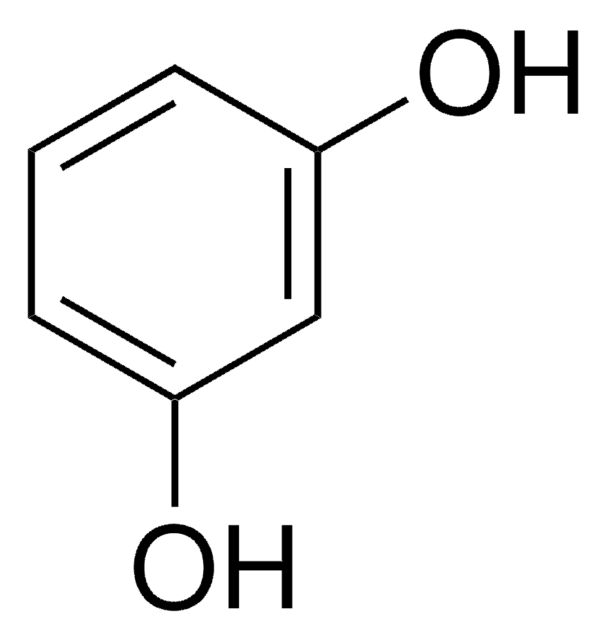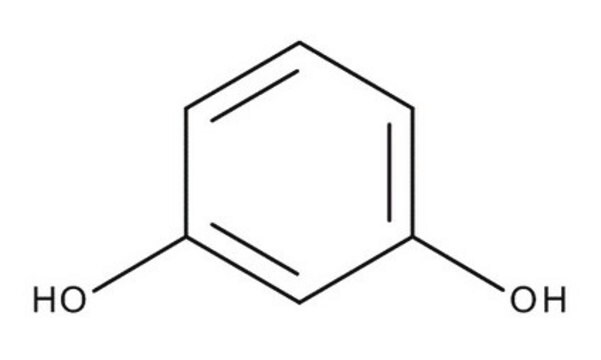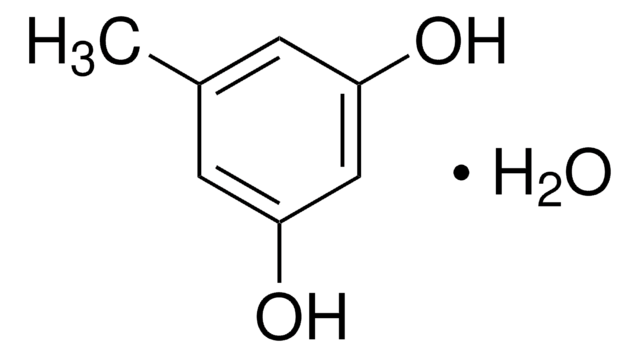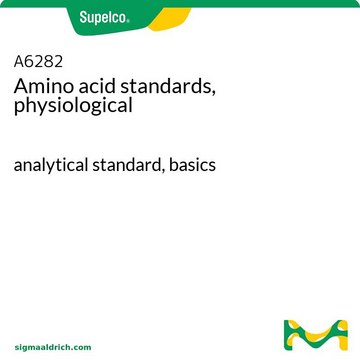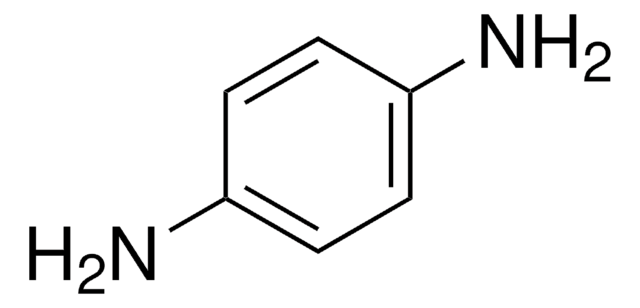R5645
Resorcinol
BioXtra, ≥99%
Synonym(s):
1,3-Benzenediol
About This Item
Recommended Products
vapor density
3.8 (vs air)
Quality Level
vapor pressure
1 mmHg ( 21.1 °C)
product line
BioXtra
Assay
≥99%
form
powder
autoignition temp.
1126 °F
impurities
≤0.005% Phosphorus (P)
≤0.1% Insoluble matter
ign. residue
≤0.1%
bp
178 °C/16 mmHg (lit.)
mp
109-112 °C (lit.)
solubility
H2O: 1 M at 20 °C, clear, faintly yellow
anion traces
chloride (Cl-): ≤0.05%
sulfate (SO42-): ≤0.05%
cation traces
Al: ≤0.0005%
Ca: ≤0.0005%
Cu: ≤0.0005%
Fe: ≤0.0005%
K: ≤0.005%
Mg: ≤0.0005%
NH4+: ≤0.05%
Na: ≤0.005%
Pb: ≤0.001%
Zn: ≤0.0005%
SMILES string
Oc1cccc(O)c1
InChI
1S/C6H6O2/c7-5-2-1-3-6(8)4-5/h1-4,7-8H
InChI key
GHMLBKRAJCXXBS-UHFFFAOYSA-N
Looking for similar products? Visit Product Comparison Guide
Signal Word
Danger
Hazard Statements
Precautionary Statements
Hazard Classifications
Acute Tox. 4 Oral - Aquatic Acute 1 - Aquatic Chronic 3 - Eye Dam. 1 - Skin Irrit. 2 - Skin Sens. 1B - STOT SE 1 Oral - STOT SE 2 Oral
Target Organs
Central nervous system,Blood, Respiratory system
Storage Class Code
6.1C - Combustible acute toxic Cat.3 / toxic compounds or compounds which causing chronic effects
WGK
WGK 2
Flash Point(F)
260.6 °F - closed cup
Flash Point(C)
127 °C - closed cup
Personal Protective Equipment
Regulatory Listings
Regulatory Listings are mainly provided for chemical products. Only limited information can be provided here for non-chemical products. No entry means none of the components are listed. It is the user’s obligation to ensure the safe and legal use of the product.
PDSCL
Deleterious substance
PRTR
Class I Designated Chemical Substances
ISHL Indicated Name
Substances Subject to be Indicated Names
ISHL Notified Names
Substances Subject to be Notified Names
JAN Code
R5645-500G:4548174009383
R5645-100G:4548174009376
R5645-BULK:
R5645-VAR:
Choose from one of the most recent versions:
Already Own This Product?
Find documentation for the products that you have recently purchased in the Document Library.
Customers Also Viewed
Our team of scientists has experience in all areas of research including Life Science, Material Science, Chemical Synthesis, Chromatography, Analytical and many others.
Contact Technical Service